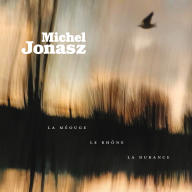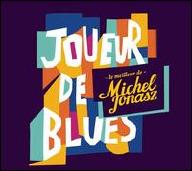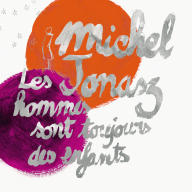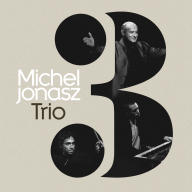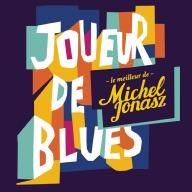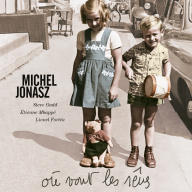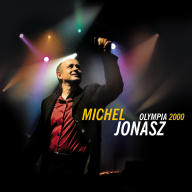Jonasz was born in Drancy (a town known for its sad World War II history) on January 21, 1947, in a Hungarian-Jewish family. Temporarily leaving aside his first artistic choice, acting, he set his mind on a music career. Influenced by famous Frenchmen Georges Brassens, Léo Ferré and Jacques Brel, as well as Ray Charles and Eddy Mitchell, he initially formed three bands, including "The King Set" under which name he released a first single, Apesanteur, with the help of his friend Alain Goldstein. But Jonasz's solo career actually started in 1969, with the release of his single Adieu la Terre. After two more singles, his first self-titled LP came out in 1974, a record which he had been asking for complete control of, but was assigned Jean-Claude Vannier as a musical coordinator. The record included two possible radio breakthroughs, Supernana (actually a Jean-Claude Vannier song) and Dîtes Moi. 1975's second album, Changez Tout, displayed Pierre Grosz's lyrics and a more self-assured Jonasz taking full credit for the music, and included the first Jonasz-trademarked single, Les Vacances Au Bord De La Mer.
Touring France with major artists, Jonasz started to seduce a larger audience, and in 1976, he released Je Voulais Te Dire Que Je T'attends, a non-LP hit single. 1977 saw him finally embrace the complete songwriting experience, coming up with a new LP of entirely self-composed and written material. His newfound popularity gave Jonasz wings on-stage, and a recording of his November 1977 show at Le Théatre de La Ville was released in 1978. That same year saw him win a SACEM award and release of another LP, Guigui, made in collaboration with Gabriel Yared. 1979 saw his first-ever Olympia set as main act.
With Les Années 80 Commencent, his sixth record, he was garnered a second award, the Prix de l'Académie Charles Cros. Most of his time was spent on tour, except for his work on the soundtrack for Jacques Monnet's movie #Clara et les Chics Types. His celebrated seventh record, La Nouvelle Vie, was released in 1981, becoming his most popular record to date, even earning Jonasz his first Gold Record. In 1982, he got a part in Elie Chouraqui's movie, #Qu'est-ce Qui Fait Courir David?, leaving him little time to record. He released one single (Lord Have Mercy), wrote material for Eddy Mitchell (Lucille) and Diane Dufresne (Une Toune Qui Groove) and performed a few live shows. Staying on the studio/tour sequence started a while ago; Jonasz began 1983 with a new record, Tristesse, and after two weeks at L'Olympia, he began his largest tour yet, which included shows in France, Belgium and Switzerland. In 1984, he received another Gold Record for Tristesse. 1985's Unis Vers l'Uni finally made his mainstream breakthrough, gaining him intense popularity, thanks to the infectious La Boîte De Jazz, La Bossa, or the clever La FM Qui S'est Spécialisée Funky.
This success led to a huge tour, taking him overseas to Québec and on to three Victoires De La Musique awards (Singer of the Year, Single of the Year, Best Studio Work). Jonasz waited till 1987 to come back with an ambitious stage project, La Fabuleuse Histoire de Mr Swing, played on tour and ending up in Paris in 1988, where it was released as a double-live album and rewarded by a Victoire De La Musique for Best Show. In 1989, he worked on Elie Chouraqui's Miss Missouri soundtrack, but his career pace then began to slow down, his next record, Où Est La Source didn't come out until 1992, and was not as warmly received as his previous efforts. So far, the '90s and early 2000s have been Jonasz's least popular decade. 1996's Soul Music Airlines didn't hit hard enough to earn rightful comeback, status; nor did 2000s Pôle Ouest or 2002's Où Vont Les Rêves. His anticipated comeback in 2005 finally put him back in the saddle, and in 2007, Jonasz released a new album, Chanson Française, in which he covered and paid respect to some of his all-time favorite French singers. ~ Olivier Duboc, Rovi


